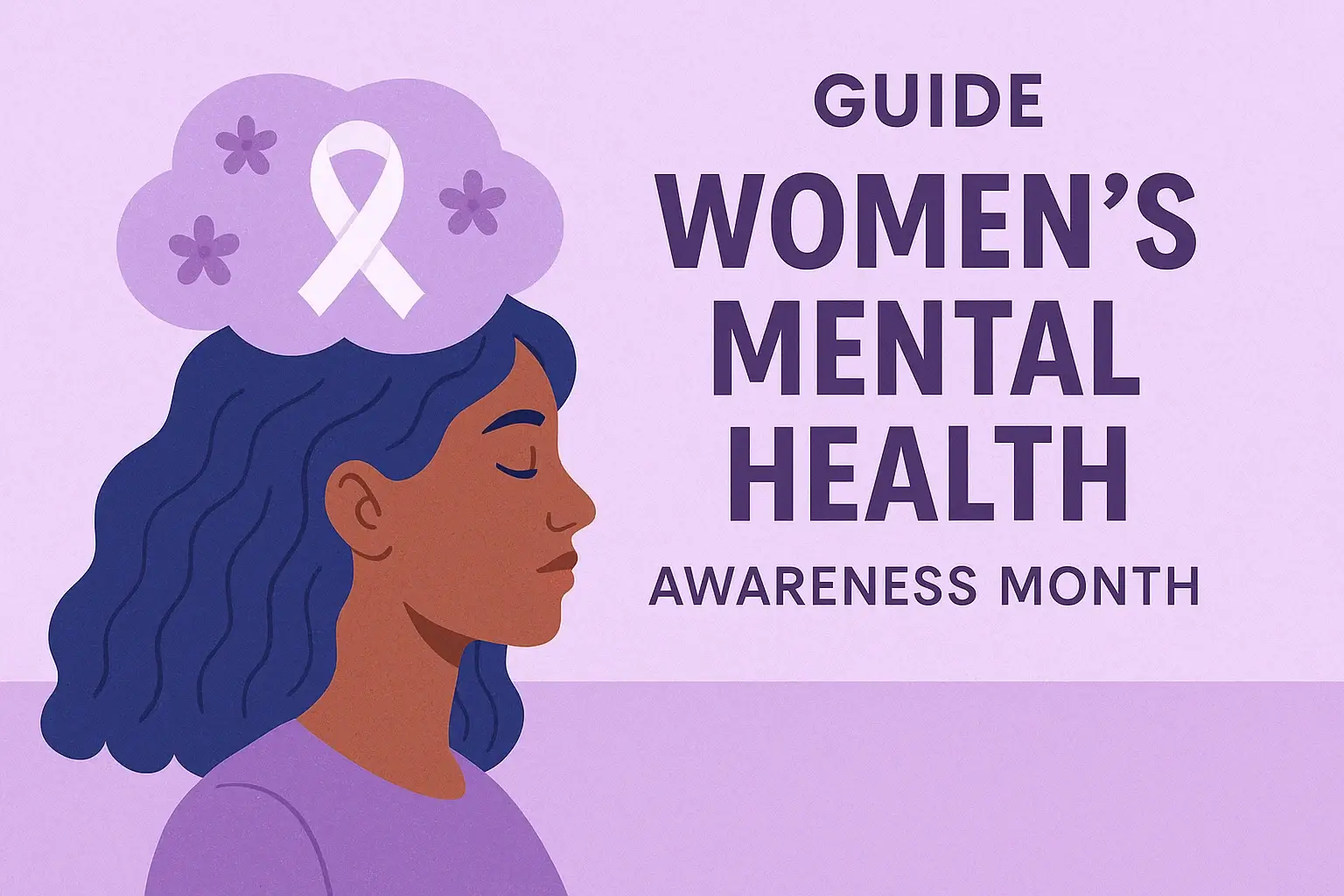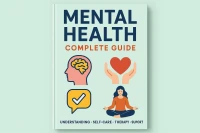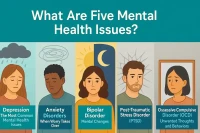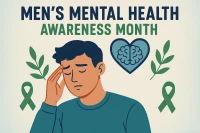Women's Mental Health Awareness Month highlights the unique mental health issues that women face. This awareness period highlights the need to support women's mental health globally.
Definition and Purpose
Women's Mental Health Awareness Month highlights the unique mental health needs of women. Mental health impacts everyone. However, women often face specific conditions more frequently. They are affected by unique biological, social, and cultural factors that influence their well-being. This awareness month teaches communities about women's mental health. It helps reduce stigma and shares helpful resources.
Why Women's Mental Health Matters
Focusing on women's mental health is crucial, especially when you see the statistics. Women are twice as likely as men to experience depression and anxiety disorders. They also deal with mental health issues related to reproductive health. One example is postpartum depression, which impacts up to 20% of new mothers. These differences aren't just numbers. They represent millions of women needing targeted support and understanding.
Connection to Broader Mental Health Awareness
Women's mental health awareness is a crucial aspect of Mental Health Awareness Month. This connection highlights the importance of advocacy for all mental health issues. Women's Mental Health Awareness Month is observed in various ways by different organizations. It often aligns with Mental Health Awareness Month in May. This timing builds strong momentum for mental health advocacy throughout the year.
Importance of Women's Mental Health
Women's mental health awareness is essential. We need to look at the mental health challenges they face. These issues impact families, communities, and society as a whole.
Global Statistics and Impact
Key statistics on women's mental health globally reveal alarming trends that demand attention. Women's mental health facts show that depression impacts 264 million people globally. Women are 50% more likely to experience depression than men. Anxiety disorders impact 40 million adults in the U.S. Women are twice as likely to be affected as men.
These numbers represent real people facing real struggles. These challenges impact their work, family care, and community involvement. The effects reach beyond individual women. They also affect their children, partners, and broader social networks.
Common Mental Health Challenges
Women often deal with mental health issues. These include anxiety, depression, eating disorders, and trauma-related conditions. Women usually face co-occurring conditions, like depression and anxiety, together. This can make treatment and recovery more complicated.
Postpartum Depression Awareness Month focuses on mental health issues for mothers. These challenges impact the growth of mothers and their children. They also impact family stability. Understanding these common conditions helps communities recognize signs and provide appropriate support.
Societal and Cultural Pressures
We can't ignore the impact of societal and cultural pressures on women's well-being. This is crucial when we talk about women's mental health. Women often have to excel in multiple roles simultaneously. They are expected to be professionals, mothers, caregivers, and active community members. Competing demands cause ongoing stress. This stress can trigger or worsen mental health issues.
Women's emotional expressions are often overlooked in discussions about mental health awareness. This highlights gender differences in how mental health is perceived. This can delay diagnosis and treatment. Awareness campaigns are crucial in this cultural context. They help change perceptions and improve outcomes.
Unique Mental Health Challenges Women Face
Women's mental health faces many challenges. These issues often link together. Biological, psychological, and social factors shape them. Understanding these connections is essential for effective treatment.
Biological and Hormonal Influences
Biological and hormonal factors impact women's mental health throughout their lives. The menstrual cycle, pregnancy, postpartum period, and menopause all bring hormonal changes. These changes can affect mood, anxiety, and mental well-being. Natural biological processes can trigger mental health episodes in vulnerable women. They can also worsen existing conditions.
Understanding these links helps healthcare providers give better treatment. They consider hormonal factors along with other influences. It shows women that their mental health struggles are real. They can be treated, not just endured.
Maternal Mental Health Challenges
Postpartum depression and maternal health are key parts of women's mental health. They need special focus. Maternal mental health awareness initiatives show that pregnancy and childbirth can cause serious mental health problems. These problems can impact both mothers and their children.
These conditions don't mean you're weak or failing as a mother. These are medical issues that can be improved with the proper treatment. Stigma about maternal mental health stops many women from getting help. Therefore, awareness campaigns are crucial in promoting treatment and support.
Trauma and Violence Impact
Gender-based violence and trauma hurt women's mental health. This needs trauma-informed care and exceptional support services. Women often face specific traumas. These include domestic violence, sexual assault, and childhood abuse. Such experiences can lead to post-traumatic stress disorder, depression, and anxiety.
We must grasp how violence, trauma, and mental health connect. This understanding will help us address trauma-related problems. This awareness enables communities to develop more effective prevention programs and support services.
Work-Life Balance Stress
Balancing work, family, and social expectations can be a significant source of stress for many women. This stress leads to special mental health challenges. Balancing work success with childcare and household responsibilities can lead to ongoing stress. This stress may lead to burnout, anxiety, and depression.
This challenge has grown in recent years. More women are joining the workforce, but the roles of family caregiving have not undergone significant changes. Recognizing this reality is essential for developing effective support systems and workplace policies.
Symbols and Campaigns of Women's Mental Health Awareness
Visual symbols and organized campaigns are key to raising awareness. They build community and advocate for improved resources and policies to support women's mental health.
Awareness Colors and Symbols
The women's mental health awareness ribbon is usually green and teal. These colors are connected to mental health awareness and highlight the unique needs of women. These colors are featured on ribbons, clothing, social media graphics, and awareness materials in various campaigns.
Symbols for women's mental health awareness often incorporate classic signs, such as the semicolon and lotus flower, alongside feminine colors and themes. This fusion creates images that show women's unique experiences. It also ties into larger mental health movements.
Global Campaigns and Movements
Global women's mental health awareness efforts show that communities around the world value women's mental health needs. These campaigns vary widely. They include grassroots social media movements and significant policy advocacy efforts. Major mental health organizations often lead these initiatives.
Women's mental health awareness campaigns focus on different themes each year. They address current challenges and highlight key issues that require attention. Women's Mental Health Awareness Month has a different theme each year. Still, it always highlights empowerment, support, and the need for systemic change.
Ways to Support Women During Awareness Month
Supporting women's mental health needs teamwork. Individuals, families, communities, workplaces, and organizations must work together to achieve their goals. This creates safe spaces for women to seek help and feel supported in their recovery.
Individual and Community Actions
Talking, sharing resources, and showing empathy can significantly improve women's mental health.
Support Women's Mental Health Awareness Month by:
- Educating yourself about their challenges.
- Sharing accurate info on social media.
- Check in with women in your life who may be struggling.
Family and community support means providing safe spaces. Here, women can talk about their mental health concerns without fear of judgment. This could mean starting support groups, holding educational events, or simply being there to listen when someone wants to talk.
Workplace and Organizational Support
Workplace support for women's mental health means creating policies and practices that address the specific challenges women encounter. This might include flexible hours for working mothers, programs tailored to support women's needs, and training for managers on mental health awareness.
Women's mental health awareness groups are vital. They offer resources, advocacy, and direct services. Giving, volunteering, or speaking up for these groups helps them grow and make a bigger difference.
Activities and Events During the Month
Activities for Women's Mental Health Awareness Month include educational workshops and community events. These events help unite people who care about women's mental health.
Educational and Community Events
Local and global awareness events provide opportunities for education, community building, and sharing resources. These might include panel discussions featuring mental health experts, workshops on stress management and self-care, or community walks to raise awareness and funds for women's mental health services.
Mental health awareness activities for women focus on practical skills. They help women spot symptoms, locate resources, and support friends or family in need. These educational components help build community capacity to support women's mental health.
Digital Campaigns and Advocacy
Social media campaigns for women's mental health use digital platforms. They reach a wider audience and build online communities centered on women's mental health. Hashtags, share campaigns, and digital storytelling boost awareness. They also connect women who may feel alone in their struggles.
These digital efforts support in-person activities. They also raise awareness for women who are unable to attend events. These women still need information and support.
Inspiring Stories and Case Studies
Real stories of women beating mental health challenges offer hope. They show that recovery is possible with the proper support and treatment. These stories lower stigma. They show that mental health issues can affect anyone. Seeking help is a sign of strength.
Community Impact Stories
Awareness campaigns can really change lives. They help improve women's mental health by raising awareness through organized efforts. When communities focus on women's mental health, more women get help. Support systems improve, and the overall well-being of the community benefits.
Community-driven initiatives show how grassroots organizing can boost women's mental health. Local support groups, peer mentoring programs, and community resource centers offer vital help. They work in conjunction with professional mental health services.
How to Get Involved
To support women's mental health awareness, we need both personal commitment and teamwork. Together, we can make fundamental changes in how society meets women's mental health needs.
Participation and Advocacy
Participating in awareness events helps you learn, meet new people, and increase community awareness. Look for events related to Women's Mental Health Awareness Month at local mental health organizations, healthcare systems, or community centers in your area.
Safe spaces for open discussions, both online and offline, allow women to share their experiences. This comfort encourages them to seek support. You could talk to your family, set up discussion groups, or join online forums about women's mental health.
Supporting Organizations and Resources
Donating to women's mental health groups boosts services and resources for those in need. These groups offer crisis help, counseling, educational programs, and advocacy. These efforts support women in your community and beyond.
Supporting women's mental health rights means pushing for policies that make care easier to access. It also involves tackling discrimination and acknowledging the unique challenges women encounter. This could include reaching out to elected officials, supporting key laws, or participating in advocacy campaigns.
Conclusion
Women's Mental Health Awareness Month is a crucial reminder. We need focused attention, specialized knowledge, and targeted resources for women's mental health. Women's mental health awareness is vital. It goes beyond just knowing the facts. We need to make fundamental changes to help women, their families, and their communities.
We can tackle the unique challenges women face by using education, advocacy, and community support. This will help us create more inclusive and effective mental health systems. Self-care tips, combined with professional support and community resources, form a comprehensive approach to women's mental health.
At Gendrics, we recognize that women's resilience is closely linked to mental health awareness. With the right resources and strong communities, women can tackle mental health challenges. Good treatment helps them succeed. The awareness month celebrates women's strength. It also calls for ongoing advocacy and support.
Supporting women's mental health is a year-round effort. It needs constant attention, resources, and advocacy. This commitment can bring lasting change to women and their communities worldwide.





Comments